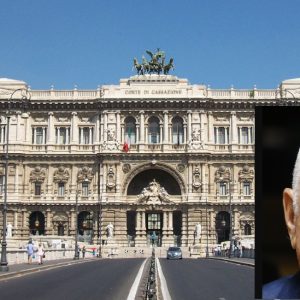The National Association of Magistrates (ANM) has called for respect for judicial independence, stating the government cannot expect judges to make decisions aligned with its interests.
In a statement issued on Monday, the ANM said, “The National Association of Magistrates forcefully asks for the judiciary’s autonomy and independence to be respected.”
The association stressed magistrates “cannot be expected to make decisions inspired by the need to cooperate with the government.” It added that if judges acted according to policymakers’ expectations, they would “betray their constitutional mandate.”
The ANM expressed “deep concern” over government criticism, noting that ridicule had replaced legitimate critique. It condemned government allegations that judges were motivated by ideological bias or overstepping their powers. These allegations came after a Rome court rejected the detention of 12 migrants held at a new Italian-run centre in Albania.
Justice Minister Carlo Nordio had labelled the court’s ruling “abnormal,” while Premier Giorgia Meloni suggested that certain members of the judiciary had an agenda against her government.
On Monday, the government issued a new migration decree which included a list of safe countries. This so “A judge cannot fail to apply it”, Nordio said.
No judicial bias
The row between the judiciary and the government intensified when Meloni published an excerpt from an email written by prosecutor Marco Patarnello. In the message, Patarnello warned that Meloni was “stronger and much more dangerous” than former premier Silvio Berlusconi, who had frequently clashed with the judiciary. Right-wing politicians seized on the email as proof of judicial bias.
However, critics noted that Meloni omitted part of the letter in which Patarnello stated, “We must not engage in political opposition, but we must defend jurisdiction and the citizens’ right to an independent judge.”
On Monday, Giuseppe Santalucia, president of the judiciary’s union, dismissed the notion of judicial bias. “We are not against the government,” he said, “It would be absurd to think that the judiciary, an institution of the country, is against political power, another institution of the country.”





